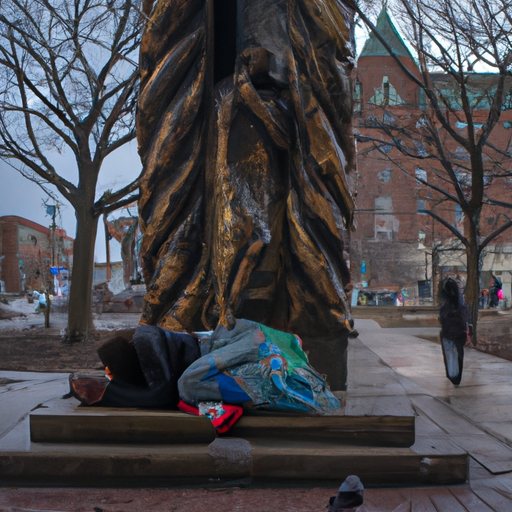Addressing the Devastating Opioid Crisis in Ontario: A Cry for Assistance and a Plan for Abatement
In an urgent appeal reflecting the grave state of affairs, Sault Ste. Marie Councillor Matthew Shoemaker has issued his 10th letter to the Ontario government asking for aid to address the opioid crisis and mental health issues in the region. The crisis has reached an overwhelming level that the local community can no longer manage on its own.
An Overview on the Opioid Crisis in Ontario
The opioid crisis is reflecting its devastating effects across Ontario, with significant impacts observed in homeless populations, skyrocketing crime rates, and the strain on front-line emergency services. The crisis has instigated a national emergency, with opioids claiming the lives of eleven Canadians daily.
Opioid’s Destructive Effects on the Homeless and Crime Rates
– In Ontario, the opioid crisis shows its severe implications in disproportionately affecting the homeless population. Drug usage among the homeless is alarmingly high, occurring due to a vicious cycle of addiction, poverty, and a lack of access to suitable mental health resources.
– There has been a disturbing surge in crime rates, with thefts and break-ins on the rise. This increase is attributed primarily to drug addiction-related crimes, further demonstrating the opioid crisis’s multifaceted drawbacks.
Impact on Front-line Emergency Services
Opioids have strained emergency services to the brink, with overdose cases flooding the emergency wards. Emergency responders, including paramedics and police teams, are increasingly administering naloxone – a medication used to block the effects of an opioid overdose. The heightened demand for naloxone and its recurrent use further highlights the scope of the opioid crisis.
Efforts to Combat the Opioid Crisis
In his heartfelt plea, Shoemaker identified and expounded on some actionable solutions that the province could support to address the pressing issues. These include:
– Establishing a permanent provincial mental health court
– Sending harm reduction teams from southern Ontario to the north to assist with the crisis
– Signing onto the Canadian opioid abatement class action
The Call for a Mental Health Court
Shoemaker underscored the establishment of a permanent provincial mental health court in Sault Ste. Marie. This court, which operated on a pilot basis until September 2020, diverted mentally ill offenders from the conventional criminal justice system, allowing them adequate time to receive treatment and rehabilitation.
Support from Southern Ontario’s Safer Opioid Supply Programs
Bringing in harm reduction teams from Southern Ontario to the North could significantly influence addiction management. A case in point is the Safer Opioid Supply programs of Southern Ontario, which provide a safer and regulated opioid supply to avoid illicit drug usage, proving to be successful in improving patient health and reducing drug-related crimes.
Canadian Opioid Abatement Class Action
Lastly, Ontario is urged to join the Canadian opioid abatement class action lawsuit. Aligning with this lawsuit can empower the province to seek compensation from opioid manufacturers and distributors who have precipitated or contributed to the opioid epidemic.
Concluding Remarks
The opioid crisis in Ontario carries far-reaching socio-economic ramifications, highlighting an urgent need for additional resources and sustained multi-pronged interventions. In response to Shoemaker’s earnest appeal, Ontario needs to invest in systemic and lasting solutions, comprising comprehensive mental healthcare resources, harm reduction strategies, and active participation in the Canadian opioid abatement class action.
Adopting these proactive measures can help Ontario mitigate the opioid crisis’s crippling effects and champion a healthier, safer community environment. An integrated approach – addressing root causes and intermediating factors such as homelessness and mental health issues – will be crucial in successfully circumventing the opioid crisis.
